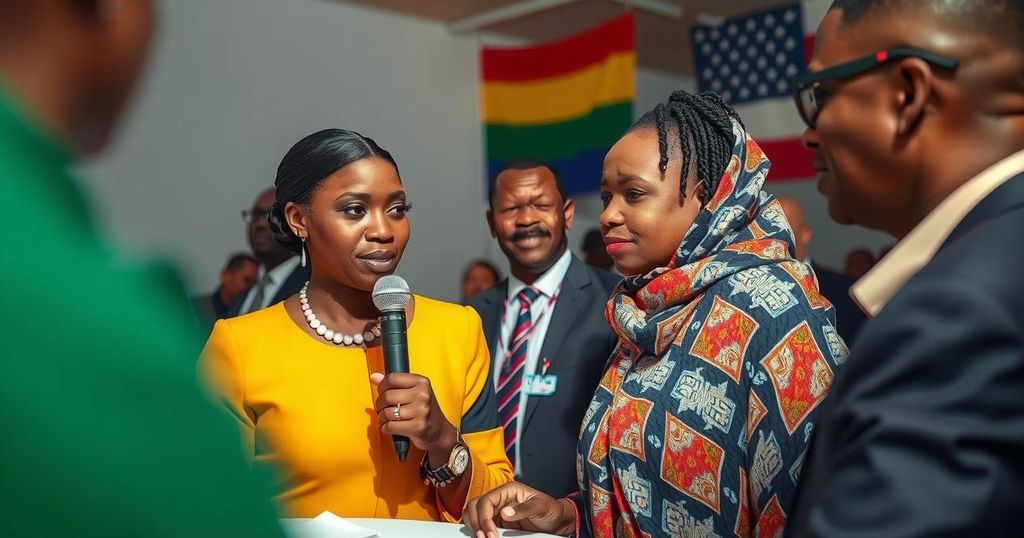Namibian Elections: A Pivotal Moment as Swapo’s Nandi-Ndaitwah Competes Against IPC’s Itula

Namibia is conducting a pivotal election with Netumbo Nandi-Ndaitwah of Swapo vying to become the first female president against Panduleni Itula of the IPC. This is the most competitive election since independence, with significant issues such as unemployment, poverty, and corruption affecting voter sentiment. Polling opened with long queues, reflecting high engagement, and a candidate requires over 50% of votes to win outright.
Voting has commenced in Namibia, marking what may be the most competitive election since the nation gained independence from South Africa 34 years ago. Netumbo Nandi-Ndaitwah aims to become Namibia’s first female president as the nominee from the ruling South West Africa’s People’s Organisation (Swapo), following the death of former president Hage Geingob in February. Challenges such as unemployment, poverty, inequality, and corruption allegations have diminished support for Swapo, which has governed since 1990. Nandi-Ndaitwah faces significant competition from Panduleni Itula of the Independent Patriots for Change (IPC), along with 14 additional candidates.
As polling began at 07:00 local time on Wednesday, long lines formed at polling stations. A candidate must garner over 50% of votes for direct win, or else a runoff will be held between the two leading candidates. Casting her vote in Windhoek, Nandi-Ndaitwah appealed to Namibians to participate, emphasizing that their choices would influence their lives over the next five years.
In a political landscape still heavily influenced by tradition, Nandi-Ndaitwah’s extensive experience in government is seen as an asset. Her opponent, Itula, a former dentist and lawyer, previously secured 29% of the vote in 2019 against Geingob. Namibia’s interim presidency is currently held by Nangolo Mbumba, who assumed office in February but is not contesting in this election.
Namibia has a history of stable governance since gaining independence in 1990, primarily under the leadership of the ruling Swapo party. However, recent elections have revealed increasing discontent among voters due to pressing social issues, including high unemployment rates and corruption. The presence of young voters, who constitute a substantial portion of the electorate, adds an unpredictable element to the electoral outcome. This election is particularly significant as it witnesses a female presidential candidate opposing a traditionally male-dominated political environment, aiming to change the course of leadership in the nation.
The unfolding elections in Namibia represent a crucial moment in the country’s political history, with an actively engaged electorate and a diverse slate of candidates. As voters cast their ballots, the strength of the contenders—particularly that of Netumbo Nandi-Ndaitwah and Panduleni Itula—will reveal the public’s response to years of governance under Swapo. Additionally, the impact of younger voters could play a decisive role in shaping Namibia’s political future and addressing the pressing socio-economic challenges facing the nation.
Original Source: www.bbc.com







